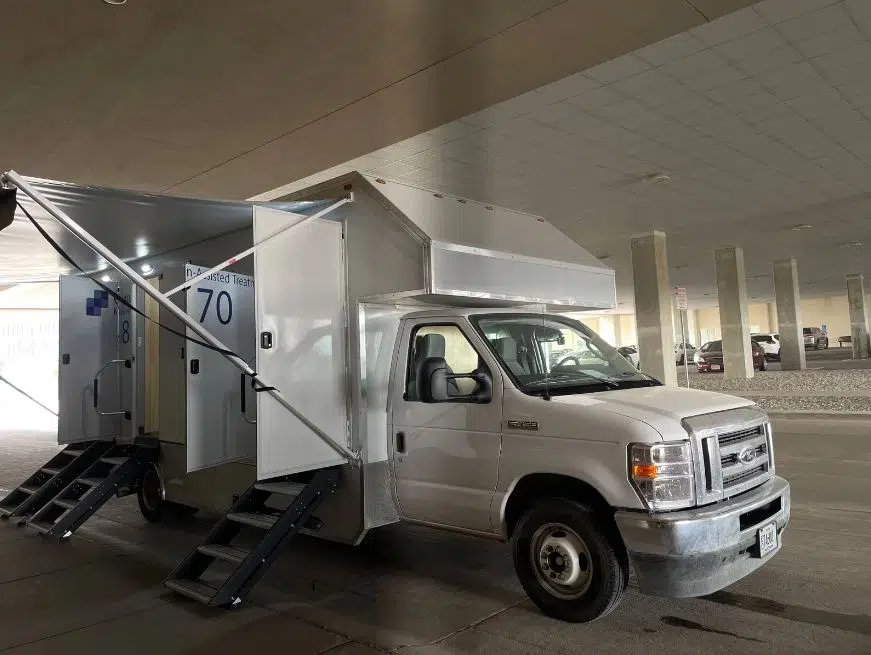
One of the Acadia Healthcare mobile treatment trucks intended to help expand medical training and access June 28, 2023. PC: Fox 11 Online
GREEN BAY, WI (WTAQ-WLUK) — The growing opioid threat in our country is prompting the state to make changes.
“It saves lives. It brings treatment right to their doorstep,” said Sarah Neerdaels, the regional director at Acadia Healthcare.
The Wisconsin Department of Health Services co-hosts a conference on harm reduction and new opioid safety measures in the works.
“Harm reduction just really works hard to improve health for people that are actively using drugs. We hope that people are going to learn of some emerging issues related to harm reduction,” said Scott Stokes, the Department of Health Services communicable disease harm reduction supervisor.
The goal is to reduce substance use damage and risk behaviors that lead to injury. This further action against the dangers of opioids will work towards preventing opioid deaths in the community.
Stokes says this conference aims to get people involved in treatment services.
“We just feel that the time is right, given the number of fatal overdoses we continue to see in the state,” he added. “We need to take the next steps to just doing whatever we can to improve the health of people who are actively using drugs.”
Improving health and social function as well as preventing disorder progression is the focus.
The comprehensive treatment center group, through Acadia Healthcare, has created mobile treatment trucks to help expand medical training and access.
The unit featured at the convention is one of six that will travel from Green Bay up to Marinette to service 75 to 100 people on a daily basis.
“The hope is that they’re no longer traveling sometimes two hours round trip seven days per week,” said Neerdaels. “So, bringing the service to where they are so that they can get their life back in order — get a job, go to school, get their children back and get off of opioids.
Policy Advisor and Acting Director of Opioid Initiatives Paul Krupski says the trucks are just one of many steps the DHS is taking to address substance use disorders that will, in turn, reduce harm in Wisconsin.
“We’re just trying to make sure that people understand what harm reduction is — educate them and make them more comfortable with it,” explained Krupski. “It’s really all about breaking down stigma. Stigma is our number one challenge right now when we talk about drug user health and safer use.”
DHS hopes to continue to expand access to Naloxone, Narcan and Fentanyl test strips.
The City of Green Bay is set to place Naloxone dispensing kits at three city buildings for public use in case of emergency.





Comments